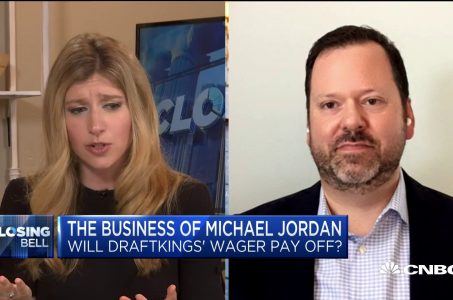Tipsy Gamblers More Likely to Throw Good Money After Bad, Says University of British Columbia Study
Posted on: November 17, 2019, 06:00h.
Last updated on: November 17, 2019, 09:19h.
It’s not surprising that gambling while intoxicated isn’t the wisest use of money. But new evidence suggests that liquid courage emboldens players to chase losses.

Researchers at the Centre For Gambling Research at the University of British Colombia (UBC) conducted a study that confirms drunk gamblers are more likely to throw good money after bad, or chase losses, than their sober counterparts.
The center, which is funded by the British Colombia Lottery Corp., performed a study where participants were broken into two groups – one that was given enough vodka to reach a state of mild inebriation and the other received placebo beverages.
Participants played digital roulette, with significantly worse results for those that had been drinking than those that had “virgin” cocktails. That makes sense, but under the influence of alcohol, gamblers were more likely to increase wagers in an effort to recoup losses than the sober players, according to the UBC study.
Inhibition is a core component of the executive functions, and by a simple account, loss-chasing could arise from impaired inhibition, giving rise to impulsivity as the tendency to make rapid, hasty gambling decisions in pursuit of winning,” said the UBC researchers, led by Luke Clark.
Alcohol has been known to reduce a person’s inhibitions in a variety of circumstances and the UBC study confirms that is the case in a gaming environment.
Gambler’s Fallacy Gets Worse, Too
Drunk gamblers’ reasoning for chasing losses has ties to the well-documented gambler’s fallacy. The gambler’s fallacy states that a player believes he may be overdue to attain a desired result in a particular game, a form of cognitive bias that ignores the fact that casino games are random and each outcome is independent of the last.
For example, a player succumbing to the gambler’s fallacy may spot a roulette table that has had five odd numbers come up on consecutive spins, sit down and wager heavily on an even being the next spin without acknowledging that the spin he bets on could just as likely be an odd number because it has nothing to do with the prior outcome.
“Chasing can also be expressed in the amount bet,” said the UBC researchers. “For example, on a roulette task with 50/50 red/black predictions, bet size increased on longer losing streaks, but did not change across winning streaks, which was again interpreted as an expression of loss-chasing.”
A 2005 study by the University of California-Berkeley indicates that players can simultaneously fall victim to the gambler’s fallacy and the “hot hand theory,” the latter of which states that positive results attained by the player in succession can continue manifesting themselves.
Risk/Reward Assessments
One of the reasons drunk gamblers may be compelled to chase losses is a skewed sense of risk and reward, which the UBC study ties to the Prospect Theory. The Prospect Theory, which is over four decades old, was originally deployed as an economic model to gauge an individual’s pain when losing money and what amount would be needed to ameliorate the situation.
Putting the theory to a hypothetical use in financial markets, a trader may tolerate a $10,000 loss if that drawdown is erased by, say, a $20,000 winner. In other words, the Prospect Theory is rationalized in a person’s mind by their internal “value function.”
When it comes to loss-chasing, an individual’s value function can display itself in several ways. First, the gambler can become less sensitive to favorable outcomes, notes UBC. Second, aversion to losses can trump the euphoria of winning in the gambler’s mind, chasing the away from the game. Finally, a bettor’s gain and loss reference points can shift over the course of a session, potentially triggering more chasing.
“Chasing may be related to a gambler’s capacity to re-reference between successive gambles,” according to UBC.
Related News Articles
Slot Machine Near Misses Do Not Lead to Continued Play by Gamblers: Study
UK’s National Health Service Breaks Up with the Gambling Industry
YouGov Survey Shows Americans Concerned About Sports Betting Ads
Most Popular
Sphere Threat Prompts Dolan to End Oak View Agreement
MGM Springfield Casino Evacuated Following Weekend Blaze
This Pizza & Wings Costs $653 at Allegiant VIP Box in Vegas!
Atlantic City Casinos Experience Haunting October as Gaming Win Falls 8.5%
Most Commented
-
VEGAS MYTHS RE-BUSTED: Casinos Pump in Extra Oxygen
— November 15, 2024 — 4 Comments -
Chukchansi Gold Casino Hit with Protests Against Disenrollment
— October 21, 2024 — 3 Comments -
VEGAS MYTHS RE-BUSTED: The Final Resting Place of Whiskey Pete
— October 25, 2024 — 3 Comments
















No comments yet